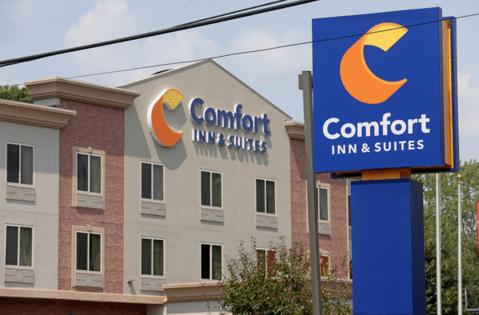State report suggests Massachusetts cut shelter system costs but some are left wanting more specifics
Published in News & Features
BOSTON — A state commission charged with studying the emergency shelter system in Massachusetts housing local families and migrants proposed cutting back costs in the face of a $1 billion tab this fiscal year, including by reducing the use of expensive hotels and motels.
A draft final report on the shelter system the group released Tuesday largely shrugs off proposing specific changes and instead calls on state officials to make family homelessness rare, brief, and non-recurring — broad themes that could guide reforms in the face of massive costs and increased demand.
The suggestions come as migrants in Massachusetts and those involved in resettlement work air concerns about President-elect Donald Trump’s stances on immigration, including a pledge to conduct mass deportations at the start of his second term in the White House.
The draft report calls on the Healey administration to take “steps to reduce costs within the (emergency assistance shelter) system and increase efficiency” and minimize the use of pricey hotels and motels, which officials used to rapidly increase shelter system capacity.
The document, which is due to the Legislature by Dec. 1, stops short of offering a detailed breakdown for retooling and bringing down the price of emergency shelters, which are projected to cost $1 billion during each of the next several fiscal years.
Lt. Gov. Kim Driscoll, who chairs the commission that authored the report, kicked any major changes to the shelter system to the Legislature, arguing lawmakers can decide “if they want to figure out more specifics on what’s the hard boundary and what’s the soft boundary.”
“We have, I would say, made this not about drawing lines in the sand but about guiding principles so that we can get some consensus,” she said. “Happy to better understand where those lines could be drawn from the Legislature, should they choose to take that up.”
But two commission members, Republicans Rep. Paul Frost of Auburn and Sen. Ryan Fattman, said the draft does not strike at the heart of what they believe is driving shelter costs — the ability for out-of-state residents, including migrants, to receive services.
Fattman, who is still mulling a potential ballot question in 2026 addressing the shelter system, told the Herald the report is “up in the clouds” and is “definitely not specific enough.” He said it should recommend making permanent the constraints Gov. Maura Healey has placed on the system through executive action.
“If some of those executive orders are working, we should put them in the law and not just make it a swipe of a pen, but project that as ‘this is something that works,’” he said during the meeting.
Frost said the draft report does not address the main reason why the commission was created.
“And that is what caused this overflow, what caused us to reach the 7,500 cap,” he said, referring to the maximum number of families that can receive services from the shelter system. “We need to do something about addressing the issue of out-of-state applicants.”
Sen. Robyn Kennedy, a Worcester Democrat, shot back at Frost.
“While it may be easy in this moment in time to blame migrants and to suggest that the problem we face is because of that, that is cruel and inhumane, and quite frankly, it’s inaccurate,” she said. “It is not because of the moment that we’re in, it’s because of the system that is so deeply broken.”
The report said the number of families eligible for and requesting state-funded shelter services “began to rapidly increase” in 2022 due to federal policies on immigration and work authorizations, a shortage of affordable housing, and the end of COVID-era programs.
Healey administration officials have estimated that about half the number of families in the shelter system are migrants from other countries and the other half are Massachusetts residents.
In nine brief sections, the draft report touches on everything from fiscal sustainability to policies “that set clear expectations and outcomes” and switching to a “needs-based” model rather than a “one-size-fits-all approach.”
The document recommends limiting reliance on hotels and motels to house homeless families, though it couches the suggestion by acknowledging they “may be a last-resort option for surge capacity at times of rapid changes in demand.”
Hotels and motels, which can cost taxpayers hundreds of dollars a night for a single family, make up about 46% of the shelter portfolio in Massachusetts, according to the report.
“Data suggests that hotels and motels are the most expensive type of shelter in the EA system, yet often provide each family a studio-style living space without cooking facilities,” the report said. “These sites were scaled up quickly to respond to the rising demand for EA shelter in 2023, but have presented significant challenges for families, providers, and municipalities.”
Kennedy said the draft report also needs to include a section addressing what comes after the document is released and the commission dissolves.
“The work is not complete, correct, and we need to have a public body that continues to meet, that continues to explore, to look into these issues,” she said.
Massachusetts Coalition for the Homeless Associate Director Kelly Turley agreed with Kennedy’s idea.
“We strongly support the recommendation from Sen. Kennedy to have a body that will continue the work,” Turley told the Herald. “We want to make sure that that body that continues the work really is comprised of people who are on the ground.”
--------
©2024 MediaNews Group, Inc. Visit at bostonherald.com. Distributed by Tribune Content Agency, LLC.







Comments